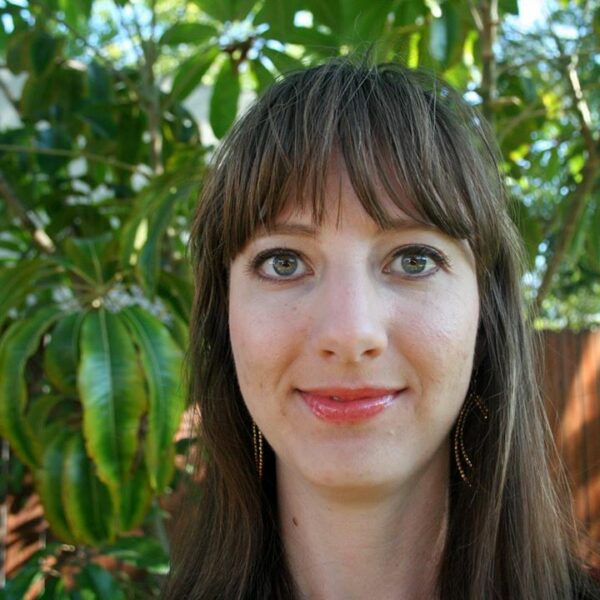
Laurie M. Wood. Courtesy Cale Weatherly
What to say when someone full of joy and energy and brilliance dies so young? Laurie M. Wood was a prizewinning historian and so much else—an incomparable friend and colleague, an extraordinary archival researcher, a wonderful teacher, a committed advocate of public education, and a beautiful writer, just for starters. A funny, soft-spoken intellectual powerhouse, she aspired to be “maximally helpful,” a principle she applied to everything from historiographic interventions to departmental service.
One of the foremost early modern global historians of her generation, Laurie won the 2021 Boucher Prize from the French Colonial Historical Society for her first book, Archipelago of Justice: Law in France’s Early Modern Empire (Yale Univ. Press, 2020). The committee lauded her integrated framing of the Caribbean and Indian Ocean worlds as “a remarkable accomplishment” made possible by “astonishing archival tenacity” and “beautiful” writing. Her focus on both the powerful and the marginalized, the committee wrote, showed how together they created “power, order, and the very nature of French colonialism.” This very human scale reflected a core methodological priority of Laurie’s. As she explained in a New Books Network interview, in Archipelago of Justice, she wanted to grapple instead with “the very localized question of what happens when . . . you’re trying to imagine the French empire that rules your life in really tangible ways but is also really hard to wrap your mind around.” The twin priorities of thinking globally and thinking locally drove much of Laurie’s research agenda.
Unfailingly kind, Laurie was a no-nonsense intellectual who thrived under pressure. Her work was profoundly collaborative, and she generously exchanged research, writing, and ideas with many peers. Her straightforward pep talks, warm sense of humor, and incisive feedback made her an ideal scholarly interlocutor—and more than that, a true friend who was there for setbacks and successes, both personal and professional. She brought her trademark combination of energetic enthusiasm, seriousness of purpose, and historiographic acumen to her collaborative projects, which included the everyday materials of colonial legal spaces.
Laurie was a native Texan who was proud that every educational institution she was part of was public. She grew up in Abilene, graduated with a BA in history from Texas Tech University, and earned her PhD at the University of Texas at Austin. During an alchemical year as a postdoc at the University of Wisconsin–Madison, she framed her book project, secured a tenure-track job at Florida State University (FSU), and met her partner, Cale Weatherly.
At FSU, Laurie quickly became a dedicated and creative professor. Her innovative and popular courses often dealt with parts of the world students are unfamiliar with. She was as committed to students who would go on to important but ordinary occupations as she was to academic stars, always making her classes accessible to a wide range of undergraduates. She strongly believed that confronting historical truths could have a lasting trickle-down effect that her students would take with them into many parts of their lives. She also turned her determination to be “maximally helpful” toward graduate students. Bubbling over with ideas to help them and the department, she lit up any meeting with characteristic insight and ruthless practicality.
As any of Laurie’s colleagues can testify, her passion for early modern history was endless and infectious. Perhaps nothing better testifies to her intellectual energy than the fact that through two years of intensive treatment for breast cancer before her death at age 38, she continued to find joy and meaning in her research and teaching. She also sustained her connections with students and colleagues. Laurie leaves her two young children, her husband, their families, and a wide circle of friends.
Laurie loved everything about being a professor. Funds have been established in her honor at FSU to support the very undergraduates she cared about so much and at the University of Pennsylvania, where she received her care, to support research on the breast cancer she had (mTNBC), which is the most deadly, the least understood, and the most lacking in targeted treatments.
Julie Hardwick
University of Texas at Austin
Meghan Roberts
Bowdoin College
This work is licensed under a Creative Commons Attribution-NonCommercial-NoDerivatives 4.0 International License. Attribution must provide author name, article title, Perspectives on History, date of publication, and a link to this page. This license applies only to the article, not to text or images used here by permission.